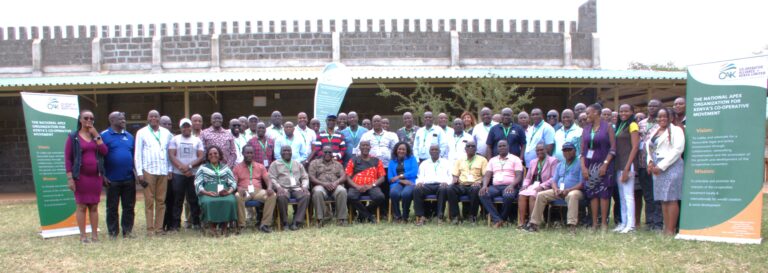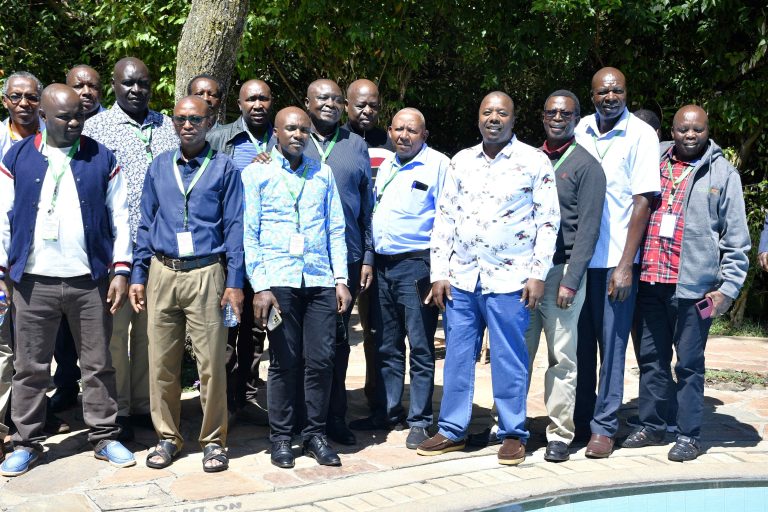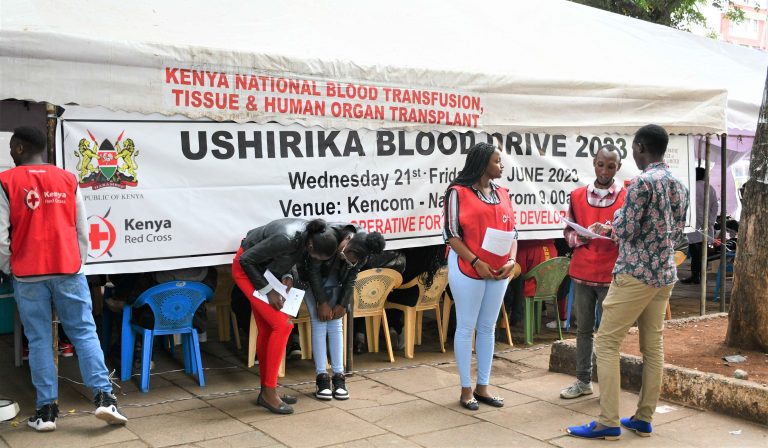By Kimuri Mwangi
The cooperative aggregation model is transforming Kenya’s agricultural landscape by enhancing value addition and improving market access for smallholder farmers, according to the Cooperative Alliance of Kenya (CAK).
Speaking during a briefing ahead of the 2025 Ushirika Day celebrations, CAK Chief Executive Officer Daniel Marube said cooperatives have become vital in increasing farmers’ earnings, especially in sectors like dairy, coffee, tea, pyrethrum, and sugarcane.
“Small-scale farmers in these sectors have seen their incomes improve over the years as they benefit from the cooperative aggregation model,” Marube said.
He cited examples from the coffee sector, noting that some societies are delivering exceptional returns to farmers. “This year, coffee registered some of the highest prices, with Njuriga Coffee Society and Othaya Coffee Society in Nyeri paying farmers Sh172 and Sh158 per kilo of cherry, respectively,” he said.
Marube gave Meru Dairy Society as a case study in effective cooperative empowerment. “Meru Dairy Society recorded 195 million litres of milk last year, and paid an average of Sh900 million every month to farmers after collecting an average of 17 million litres monthly. It had a turnover of Sh18.3 billion in 2024. Such are the examples of direct impact on the rural economies and communities,” he stated.
According to Marube, Meru Dairy has maintained a stable and sustainable income for farmers by offering consistent pricing over the past three years. “The dairy pays Sh50 every month, and Sh2 as a bonus at the end of the year, payable every February. And therefore, the farmers can plan their finances based on their daily production,” he explained.
Beyond agriculture, Marube pointed to cooperatives’ growing influence in housing, saying they have outperformed banks in mortgage financing for their members.
“Cooperatives also provide money for members to furnish their houses as well as support members who could not afford to get normal loans from the bank to access decent and affordable housing,” he said.
He also emphasized the crucial role cooperatives play in financing Small and Medium Enterprises (SMEs), especially at the startup stage. “SMEs get around 80 per cent of their starting capital from cooperatives and chamas, which offer a cheap and accessible source of financing,” he noted.
Women and youth, Marube said, have particularly benefited from cooperative-backed financing, using the funds to establish small businesses and create employment.
He revealed that cooperatives have created over 750,000 direct and indirect jobs across various value chains and predicted a growing role in employment creation. “We believe that in the next 10 years, the worker cooperatives may be one of the largest employers of the young people in Kenya,” he said.
To further strengthen the sector, Marube called on lawmakers to prioritize the passage of the Cooperatives Bill.
“We urge Members of Parliament and the Senate to fast-track the Cooperatives Bill, especially now that we are in the International Year of Cooperatives, and give it as a gift to the cooperative movement in recognition of the great work they do in supporting economic growth,” he said.
He also appealed to county governments to allocate more resources to cooperative development. “Counties should provide sufficient budgets to employ qualified cooperative officers who will provide extension services, capacity building, audit and training on good governance and ethics, which will go a long way in championing value chains within agricultural cooperatives,” he said.
As part of the upcoming Ushirika Day activities, Marube announced a blood donation drive scheduled for July 3 and 4 at the Kenyatta International Convention Centre (KICC), in partnership with the Kenya National Blood Transfusion Service (KNBTS), Kenyatta National Hospital, and KICC.
“We are calling upon Kenyans of goodwill and our members in various cooperatives to come and donate blood. We have partnered with KNBTS, Kenyatta National Hospital and KICC in efforts to support our fellow Kenyans who are in hospitals and require blood urgently,” he said.
County-level Ushirika Day celebrations will take place on Saturday, July 5, while the national event will be held in Nairobi on July 12, featuring an awards ceremony.
“On the 10th, 11th, and 12th July 2025, we will be having exhibitions at the KICC, and we call on Kenyans to visit and learn more about the cooperative movement and on how to attain financially resilient business models,” Marube said.











